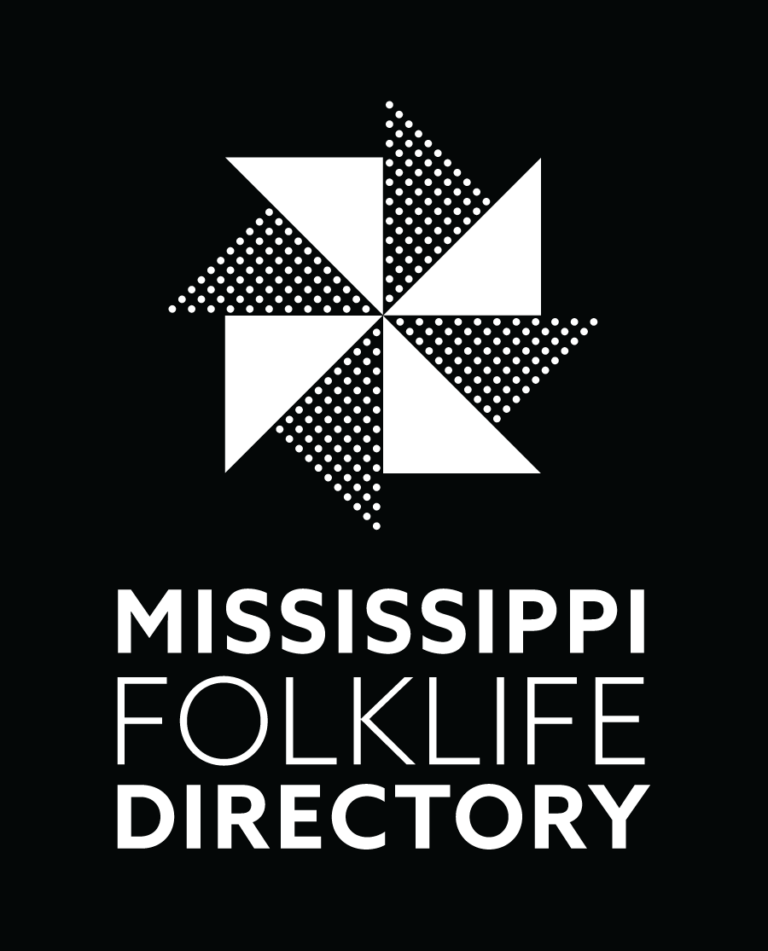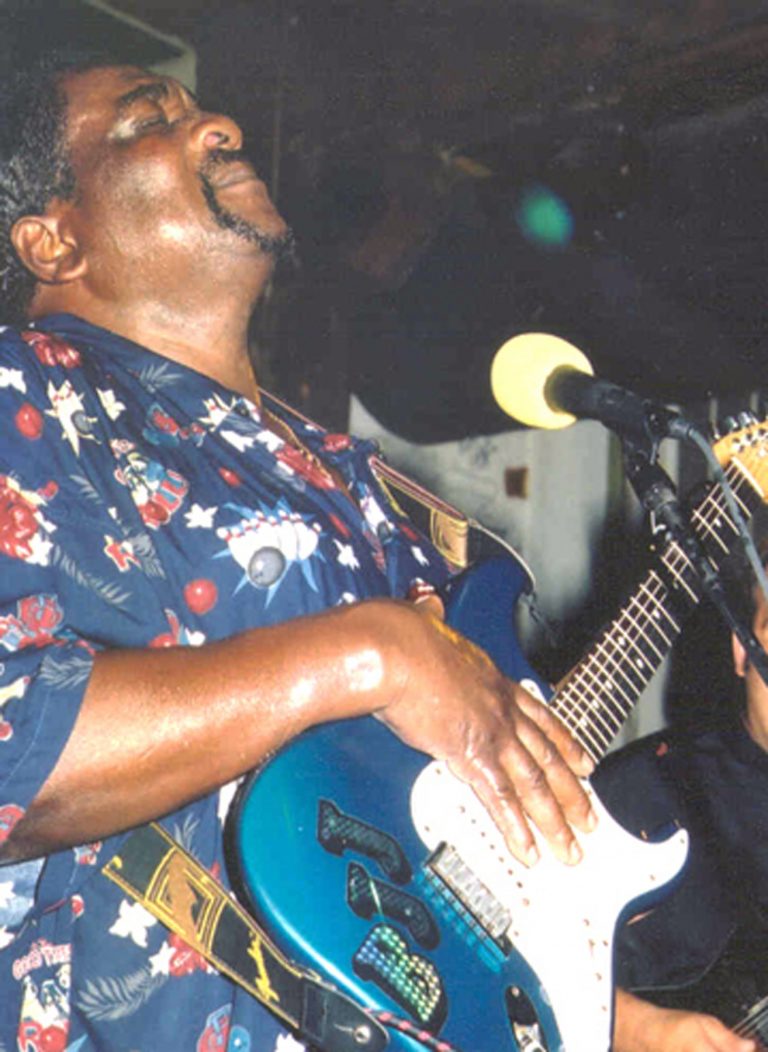Guitarist and vocalist “Big” Jack Johnson was born in Lambert, Mississippi, in 1940. He was inspired to play music by his father, Ellis Johnson, a fiddler, banjoist, and guitarist who played blues, breakdowns, and country music. Johnson, a lifelong fan of country music, began playing guitar with his father at age thirteen, and later mastered the fiddle and mandolin. By the time he was eighteen, Johnson was playing electric guitar and soon learned to play with a slide from local guitarist Ernest Roy, Sr. The barrel-chested guitarist initially received his nickname “Big Jack” from a relative who wanted to distinguish him from a cousin named “Little Jack.”
He received his first big break in 1962 when he sat in with the duo of Frank Frost, who was playing both guitar and harmonica, and drummer Sam Carr at Clarksdale’s Savoy Theater. Both men were considerably older—Carr was born in 1926, Frost in 1936—and had been playing together for a number of years, initially in St. Louis.
Johnson began playing with Carr and Frost regularly, and later that year they recorded an album, Hey Boss Man!, under the name Frank Frost and His Night Hawks for Sam Phillips’ Memphis-based Phillips International label. Johnson was featured on the instrumental “Jack’s Jump,” while another song, “Jelly Roll King,” later provided a name for the trio. The group was otherwise known as Little Sam Carr and His Blues Kings. In 1966 the group recorded several singles in Nashville for the Paula label under Frost’s name, and scored a hit with “My Back Scratcher,” a take-off of Slim Harpo’s earlier hit “Baby, Scratch My Back.”
Throughout the ‘60s and until the ‘70s the group worked together regularly, but Big Jack also worked a full-time job driving an oil truck. He also operated several clubs, and in the mid-‘70s the group was discovered at his Black Fox club by blues fan Michael Frank of Chicago. In 1978 Frank recorded the group, and the following year he started the Earwig label to issue the Jelly Roll Kings’ album Rockin’ the Juke Joint Down. The album featured four vocals from Johnson, including the traditional “Catfish Blues” and the bawdy “Slop Jar Blues.”
While the album brought the group unprecedented attention, they didn’t benefit much from the publicity, particularly as Frost had moved in 1978 to Greenville, where he stayed for many years, performing with artists including T-Model Ford and Willie Foster. Johnson and Carr continued to work together, and Johnson also formed his own bands. In the late ‘70s, his band included drummer C.V. Veal and bassist James Coleman Johnson, a cousin who today performs under the name “Super Chikan.”
In 1987 Earwig released Johnson’s debut LP The Oil Man, which featured Frost on piano, Ernest Roy, Jr. (the son of Big Jack’s early guitar mentor) on drums, and Ernest Jr.’s brother Walter on bass. The album featured the country instrumental standard “Steel Guitar Rag,” and three songs from Johnson’s pen, including the autobiographical title track. In 1989 Earwig released Johnson’s second LP, Daddy, When Is Mama Comin’ Home?, which featured Carr and Frost and was notable for his original topical songs, which condemned domestic violence (“I Slapped My Wife in the Face”) and addressed the then-relatively new AIDS crisis (“Mr. U.S. A.I.D.S.”). Around this time the Clarksdale-based Rooster Blues label also issued a Christmas single by Johnson (“Rudolph Got Drunk Last Night” b/w “Jingle Bell Boogie”) that featured Carr and Frost.
Johnson only began actively touring beyond Clarksdale in the mid-‘90s, and soon became a popular act internationally. He recorded four albums for the New York-based M.C. label—We Got To Stop This Killin’ (1996); All the Way Back (1998); Roots Stew (2000), which featured Johnson on mandolin; and The Barbecue Sessions (2002).
An album of recordings made by Rooster Blues in the early ‘90s, Oil Man Got Drunk, was issued in 1997 on the Japanese P-Vine label but had little distribution. Rooster Blues also recorded an album’s worth of material of Johnson playing in a string band with a fiddler and a cello player, but the sessions have yet to be issued.
The Jelly Roll Kings continued to record together after Johnson began his solo career. The trio played together on Frank Frost’s 1988 Earwig album, Midnight Prowler, and recorded an album, Off Yonder Wall, as the Jelly Roll Kings for the Fat Possum label in 1996. That same year they performed together for the PBS documentary River of Song, which also featured a solo performance of “Catfish Blues” by Johnson. The power of Johnson’s live performances with his own bands are also captured in the 1993 documentary Deep Blues and the concert video Juke Joint Saturday Night: Live from Margaret’s Blue Diamond Lounge.
Johnson has received multiple Handy Award nominations for his guitar-playing and songwriting and in 2003 won the Handy for best acoustic album for his The Barbecue Sessions CD. In the mid-2000s Johnson began cutting back considerably on his touring schedule, which had extended to over 300 dates annually, and spending more time at his home in Clarksdale. His home club is Red’s on Sunflower Avenue in Clarksdale, and he often performs there during the blues festival season in the Delta.
– Scott Barretta

